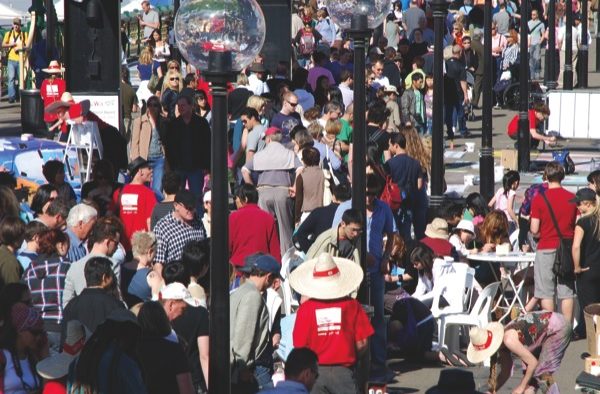Planning the perfect public event
Share

Creating an event is similar to writing a business plan. The first thing to do is create a vision for your event. What are you going to do? Why are you going to do it? How are you going to do it?
It can be tricky starting out and can feel very confusing but it’s all about getting the idea on paper. You have to start somewhere and as you do and conversations progress, the plan fills out.
Council
Approach your local council, landowner or local authority to gain permission to hold the event because without their approval there will be no event. Councils can be very helpful in providing you with the information you need to produce the event properly. It is more than likely that you’ll need to submit documentation to the council to hold the event so meet with the operations team and discuss your plans and their requirements.
Ask if they have a checklist so that you can provide the information required. Remember councils can have a huge number of events taking place in their territory so do ask for advice, it can save you a lot of time.
It can take time to get approval but you should be able to get some indication as to whether the council approves of the idea. Now it’s time to get into serious planning.
Plan
Having an idea is one thing but pulling it off is another and it’s all about preparation! Get together a team of people in your organisation and allocate jobs. Have an organisational structure and be sure that people are aware of their responsibilities and who they need to report to. Sometimes it’s worth writing job descriptions. Hold regular production meetings and between meetings communicate via phone and email.
Budget
What is the event going to cost? Put together an itemised budget to list all the costs. List income and expenditure to calculate how you’re going to raise the funds to run the event and the money you’ll raise. Create an ‘in-kind sponsorship’ column to transfer these costs to if you do receive in-kind sponsorship to cover particular budget items. Keep updating the budget as you progress.
Marketing
It’s one thing to hold an event but you have to get the people there. Identify your target market and work out how you’re going to reach them, i.e. letter box drop, newspaper, radio. Consider the costs involved and the contacts you have. Do you need to pay for advertising or can you get editorial in the paper or be interviewed on radio?
Insurance
Make sure you get public liability to cover the event and be sure to get copies of Certificates of Currency for all suppliers/companies involved in the event i.e. fete stall provider, food vendors.
Timeline / to do list
This is an essential tool. Be sure that you’ve got enough time to do everything properly. List areas, (i.e. marketing, signage, catering) and details (design flyer, send to printer), deadlines, and identify who is responsible for each task in the lead up to the event.
The more detail the better and timelines are a great way to see how much you’ve got to do and how much you’ve done. They also form part of the blueprint that makes things much easier when it comes to holding the event again.
Runsheets / event schedule
Similar to a timeline, the runsheet is the particular to the actual event. It lists times, details and identifies who is responsible. Depending on the event, runsheets can list activities hour by hour or minute by minute.
Feedback
Take notes, do surveys, get feedback from the people involved in the event, and take this in to account when planning for the following year.
Andi Mether is Festival Director of the Chalk Urban Art Festival, which is held annually in Sydney’s Darling Harbour and has an attendance of 100,000 people over four days. Chalk Urban Art is a not-for-profit organisation that aims to break down barriers in the community and encourage people to express themselves through the arts.
Menchie Khairuddin is a writer Deputy Content Manager at Akolade and content producer for Third Sector News. She is passionate about social affairs specifically in mixed, multicultural heritage and not-for-profit organisations.

















